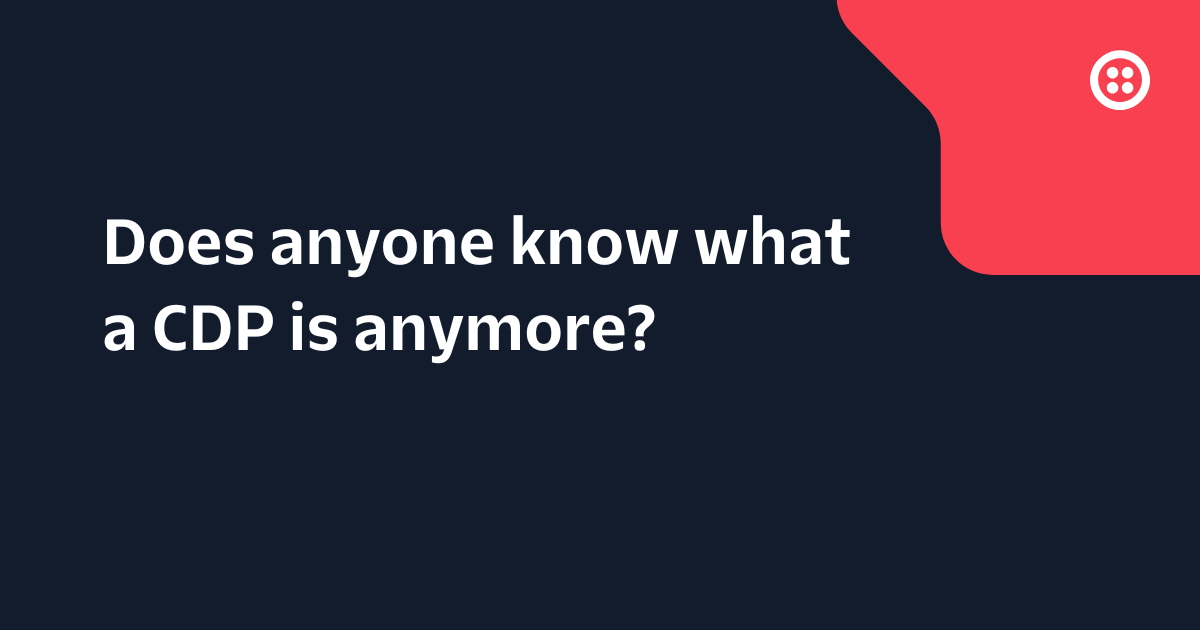Twilio Ventures Founder Spotlight: George Davis, Robbie Mitchell, Jesse St. Charles, and Brandon Reiss, Frame AI
Time to read: 5 minutes
Company Name: Frame AI
Founder Name(s): George Davis, Robbie Mitchell, Jesse St. Charles, Brandon Reiss
LinkedIn: Frame AI Company Page
Industry: AI
Stage/Funding: Series B
Location: New York, NY
This is a post in a series of interviews with startup founders who have worked with Twilio Ventures. Twilio Ventures invests in companies building tomorrow’s solutions for developers and customer engagement applications. We had the pleasure of working with George Davis, Robbie Mitchell, Jesse St. Charles, and Brandon Reiss on their startup, Frame AI.
Describe Frame AI’s startup journey in 160 characters or less (the original length of a text message)
From a team of 4 to 21 and counting, we keep growing the ways organizations can get more out of their customer data with AI.
What does Frame AI mean and/or how did it originate?
Frame AI got inspired by a trend that has little to do with AI. Building customer relationships in the smartphone era means finding many ways to communicate – voice, SMS, web chat, social, communities, etc. – because businesses must compete with everyone who will go that extra mile. And yet, even brands that are great at reaching customers can benefit from help with listening to them. Talking without listening leads to lost trust and runaway costs that get worse with scale and worsen consumers' lives.
As ML and Data consultants at the time, we saw the same “why” driving this problem at dozens of companies: customer interactions were being recorded by different teams with different tools and different goals. When engineers map that data into a CDP or Data Lake to build “golden profiles,” they often ignore the most valuable stuff – organic communication customers took the time to write or say – because it is hard to work with.
So, businesses and customers both invest so much in making contact and holding conversations. Still, the data just sits there, crackling with potential energy – both in terms of learning about customers and figuring out which customer ops are good investments. And we saw a “how” that could fix it: AI was in the early stages of a revolution that would let us extract critical facts from those conversations.
So that’s what Frame AI does. We help businesses extract facts about customers (and their operations) from call transcripts, social posts, reviews, support tickets, and other interactions. Then, we weave those facts into clear metrics about what’s driving your costs and revenue outcomes, richer customer segmentation, and automation that powers more proactive and efficient customer ops.
The main way mission has evolved over the years is that more stakeholders have become involved. Early on, we worked primarily with support leaders, trying to understand and reduce their costs. But over time, product teams, marketing teams, and the full revenue lifecycle have woken up to the idea that they need to maximize value from their most unique asset – the time their customers spend with them.
What have you enjoyed most about building Frame AI?
Working with lots of intelligent, kind people committed to using AI to expand human capacity.
What is one decision you made building Frame AI that you would make differently today?
Going back in time, we would have opened up our platform to enterprise partners sooner.
We discovered a while ago that AI can be used to listen across a company’s entire customer surface area effectively and efficiently – not as a nice-to-have at the periphery, but as a piece of core infrastructure. Yet as a result of working directly with each customer, we have split our time between core product advancements and the unique challenges posed by each customer’s data environment.
We’re thrilled with the opportunity to scale our most compelling core product value to Twilio Flex customers through the partnership. I probably would have pursued it sooner if I could do it over again.
What should potential customers know that is unique about Frame AI?
The most crucial opportunity AI presents to organizations is the ability to unlock value from their vast, dormant customer data. Even with the most modern data science tools – ETL and reverse ETL pipelines, ML ops platforms for performing bespoke inference tasks, etc. – it still takes multiple data engineers weeks or months to identify and extract the most relevant data for a new analysis task or business automation application. This has a real chilling effect on which projects get greenlit. Worse yet, resource constraints mean that many projects don’t get iterated on and maintained consistently after launch, leading to “rot” in data pipelines.
The net effect is that in spite of enterprise-wide data capture initiatives, many teams live and work within small data silos where they can invest continuously in making the data they need available. This is especially true when it comes to unstructured data – call transcripts, emails, survey responses, and other interactions that aren’t machine-readable in the first place. And often, this is where the most surprising insights, which customers spent the most effort to provide for you, are buried.
We founded Frame AI because we think AI can unlock tremendous value in stagnant data. General-purpose language models can be adapted very, very quickly to extract specific data signals from text, and even from structured data like customer profiles and event streams. This lets us operate a very rapid feedback loop with business teams, helping them explore the factors that are potentially impacting costs, growth, and risk.
Everything I’ve described so far is about the analytic use cases for AI – how can we help extract value from mountains of data. However, new advances in generative AI will change how data is consumed around the enterprise. It will make it easier to reorganize support data in a way that Product or Marketing can understand. That’s something I’m excited about and which we are investing in heavily.
Why did you select Twilio Ventures as an investor?
Twilio’s expertise in creating real-time, personalized experiences for top brands aligns perfectly with Frame AI's mission to harness AI to unlock the latent value in customer data. They're not just investors but collaborators who bring a wealth of knowledge and resources that complement our vision. Twilio's commitment to innovation in customer engagement resonates with our goal of transforming how businesses listen to and understand their customers.
How has Frame AI benefited from partnering with Twilio?
By integrating with Twilio Flex, we’re reaching more customer interactions than ever before. We’ve also expanded our reach in applying AI-driven insights to a broader array of business challenges. This partnership will soon allow us to demonstrate new applications of Generative AI, such as summarizing cases and offering context-driven recommendations.
Thank you for reading. If you would like to read more Twilio Startup Labs Founder Spotlight interviews and learn how others build, prototype, and demo on Twilio, please check out the series of articles here.
For questions about Twilio Startup Labs or to learn how to get involved, please contact Frank Y. Owusu at fyawowusu@twilio.com.
To find out more about how Twilio supports Startups, check out Grow with Twilio.
Related Posts
Related Resources
Twilio Docs
From APIs to SDKs to sample apps
API reference documentation, SDKs, helper libraries, quickstarts, and tutorials for your language and platform.
Resource Center
The latest ebooks, industry reports, and webinars
Learn from customer engagement experts to improve your own communication.
Ahoy
Twilio's developer community hub
Best practices, code samples, and inspiration to build communications and digital engagement experiences.


